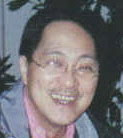 GOTCHA By Jarius Bondoc , published in The Philippine Star, Monday, April 14, 2008
GOTCHA By Jarius Bondoc , published in The Philippine Star, Monday, April 14, 2008
Gas prices keep on rising, public transporters are demanding higher fares, and their diesel vehicles continue to defile the air. Clearly the energy, transport and environment offices must put together a solution. Sadly they can’t, for one of them is the weakest link.
Consider this: ecologists and technologists trumpeted in July 2007 a smokeless, noiseless electric jeepney. Mayors jostled for the chance to test the prototypes in their locales. As orders piled up, the Asian Development Bank and a Norwegian foundation offered to speed up production, perhaps via new assembly plants. But wait. Eight months since its launch, the no-fume low-cost e-jeepney has yet to be classified by the Dept. of Transport and Communication (DOTC). Classification is needed so that the earth-friendly units can be registered for plate numbers and franchised as public rides. But the paperwork is trapped in DOTC red tape. So the e-jeepney makers and funders are wondering if maybe someone wants his palm greased. And since they won’t stoop to lowlife, they’d rather just re-launch elsewhere in
Bureaucratic baseball already has delayed the fielding of test units. E-jeepneys for
The difference is in the e-jeepney’s efficiency to reduce fares, boost operators’ incomes, and clean the air. The vehicle can run 100-120 km on a single eight-hour battery charge, with 12 passengers at 40 kph. Running completely on electricity, it spares the user from soaring fuel and lubricant costs. If the unit plies a five-km route, it can go for three days without need for recharge. which costs P110-P140.
A Chinese assembler designed the first units. GRIPP had planned to manufacture the revolutionary PUV in
* * *
Oh, but there’s one thing in which the DOTC is fast — in awarding of questionable biddings.
LTO suppliers are still murmuring about how a consortium won in Aug. 2007 a P114-million deal to install motor vehicle inspection equipment in six branches. They say the bidding apparently was rigged in favor of the group. Its papers were adjudged “passed” although the bid was unsealed and thus broke the rules. Its only other competitor was rated “failed” for not putting its technical and financial papers in separate boxes, a similar lapse.
Worse, one of the consortium’s three partners is well connected to the LTO. He is the husband of an LTO officer for operations, a member of the committee that oversaw the bidding. This is a violation of the Procurement Reform Act of 2005, which requires bidders (including joint venture partners), to disclose their relationship to any bidding officer up to the third degree of consanguinity or affinity.
The breach of law apparently didn’t bother DOTC higher-ups, who quickly endorsed and signed the supply deal.
Copies of the couple’s marriage certificate and corporate papers are now being circulated among the LTO suppliers. It’s not the first time for husband and wife in the game. They too won the bidding for six smoke emission testing machines in late 2006.
* * *
Speaking of eco-friendly vehicles, Puerto Princesa has installed along its scenic bay walk a railcar powered not by gas or electricity but human muscle. Called Karusel, the train can be pedaled by a woman with six grown men as passengers. Traction of the wheels on the rails compensates for minimal propulsion.
University students in the green-minded city designed the system for tourism and mass transport. For drawings and details, contact Vangie Lanot, 0918-4409100, or Marisa Mapa, 0919-6524388.
* * *
Reuel Aguila has won the Surian ng Wikang Pambansa distinction of Makata ng Taon 2008 for his poem, “Haibun sa Pagbabalik.” He was also the Mananaysay (Essayist) ng Taon 2007.
Placing second in poetry this year was Eros Atalia, for “Remedyo”; third, Jerry Gracio for “Binyeta sa Biyahe.” Honorable mentions: Richel Dorota, “Pagsigaw sa Pampang ng Ilog”; Ariel Tabag, “Littugaw”; and Francisco Monteseña, “Kung Nandito Ka Lang.”
* * *
e-jeepney graphic courtesy of http://www.greenpeace.org


